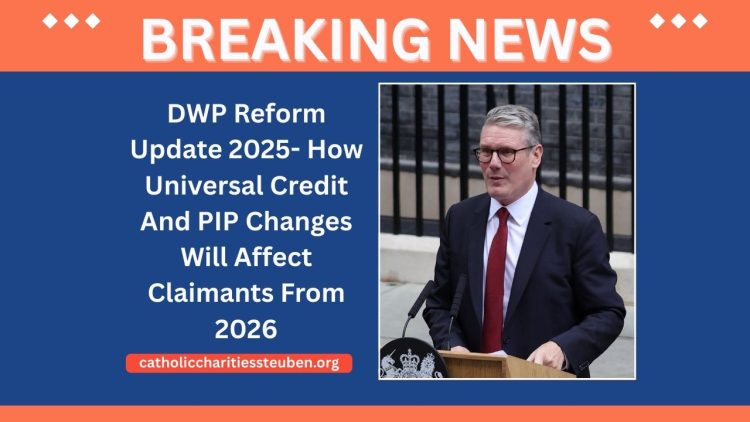The UK government is introducing significant reforms to Universal Credit (UC) and Personal Independence Payment (PIP) starting in 2026.
These changes are aimed at encouraging employment and reducing long-term welfare dependency.
However, they come with substantial implications, particularly for disabled individuals and those with long-term health conditions.
Below is a comprehensive breakdown of what’s changing, who will be affected, and how to prepare.
Key Changes in the Benefits System
Universal Credit Health Element Cut
The health-related element of Universal Credit—currently £97 per week for those with Limited Capability for Work and Work-Related Activity (LCWRA)—will be reduced to £50 per week for new claimants from April 2026. This rate will also be frozen until at least 2029/30.
- Existing claimants will continue to receive the current £97, but it will also be frozen, gradually decreasing its value in real terms due to inflation.
Increase in Standard Allowance
In a bid to offset the health element cut, the Universal Credit standard allowance will gradually increase over the next few years:
| Year | Standard Allowance (Weekly) |
|---|---|
| 2025–2026 | £92 |
| 2029–2030 | £106 |
This incremental rise is intended to boost the overall adequacy of support and encourage recipients to transition into employment.
PIP Eligibility Becomes Stricter
One of the most controversial reforms involves tougher eligibility criteria for PIP. From November 2026, applicants must score at least 4 points on a single daily living activity to qualify.
This marks a significant change from the current cumulative scoring system.
- Affected activities include managing medications, preparing food, and communication needs.
- This could lead to up to 1.2 million people losing some or all of their PIP entitlements.
Who Will Be Impacted?
Existing Claimants
Those currently receiving UC with the LCWRA component or PIP under current rules will retain their rates.
However, these will be subject to a freeze, diminishing their purchasing power over time.
New Claimants
Anyone applying for UC after April 2026 or for PIP after November 2026 will face:
- Lower financial support
- Stricter eligibility assessments
- Fewer points awarded for complex or variable conditions
Financial & Social Impact of the Reforms
| Impact Area | Estimated Figures |
|---|---|
| Households Affected | 3.2 million |
| Average Loss Per Household | £1,730 annually |
| Potential Poverty Increase | Up to 250,000 more in poverty |
These figures illustrate the potential scale of financial disruption, especially for individuals with disabilities who rely heavily on these benefits for daily living.
Steps to Take Before the Reforms Roll Out
1. Review Current Benefits
Understand how current entitlements are calculated and prepare for upcoming changes.
2. Keep Medical Documentation Updated
Ensure that GP and specialist reports reflect the ongoing impact of any health condition. This will be vital for both UC and PIP applications.
3. Claim Before the Cut-off Dates
If eligible, consider applying for UC or PIP before the new rules take effect to lock in higher support levels.
4. Seek Expert Advice
Organizations like Citizens Advice or Scope can provide free and tailored guidance to help individuals prepare.
The Department for Work and Pensions’ upcoming reforms represent one of the most substantial overhauls of the benefits system in recent years.
While they are designed to promote employment and reduce long-term dependency, they will inevitably reduce financial support for new claimants, particularly those with disabilities.
Staying informed, taking action early, and seeking professional guidance are crucial steps for anyone potentially affected.
As the 2026 rollout approaches, individuals and families must understand how these changes may shape their financial and personal futures.
FAQs
Will current Universal Credit claimants lose the health element support?
No, existing claimants will continue receiving the current £97/week, but the rate will be frozen and lose value over time.
When do the new PIP rules start?
The stricter PIP eligibility criteria will come into effect in November 2026 for new applicants.
How much financial loss is expected per household?
On average, households could lose £1,730 annually, and up to 250,000 more people may fall into poverty as a result.

